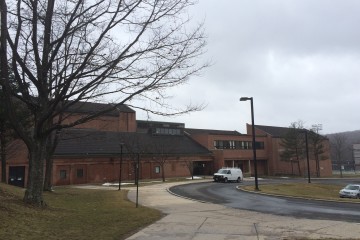SpaceX Launches Rocket and Experiments Amid COVID-19 Panic
In the chaos that COVID-19 has brought, it can sometimes be hard to think of anything but the seemingly catastrophic future. But in these times, it’s important for us to remember that we can and will get through this, and our future holds opportunity beyond this pandemic. In this spirit, Elon Musk’s SpaceX program launched its 20th space station cargo capsule to the International Space Station.
The Falcon 9 rocket launched from Orlando on March 7, with more than two tons of supplies and science experiments. This marks the 20th mission of this type that SpaceX has done for NASA over the last twelve years. Liftoff took place just before noon, as scheduled.
According to SpaceX, the ship will take just over two days to get to the ISS, and is scheduled to arrive back to Earth in April.
There are a number of experiments onboard, including a plant nursery designed by Tupperware (yes, the food container company) and Adidas experiment to test the ability to manufacture midsoles in space, and a showerhead experiment from Delta Faucet meant to test how water droplets form in zero gravity. There is also an experiment from Emory University in Atlanta investigating microgravity’s effects on stem cell production of heart cells, as well as an experiment to see how microgravity affects immune cells in the intestines.
Along with all of this, the European Space Agency is sending up a platform, called Bartolomeo, that will connect to the outside of the ISS. This area will house science experiments that can be controlled from Earth.
Perhaps more exciting than the shipment of these new experiments into space to be conducted are the results of one of the previous ones. Researchers from NASA just published a paper about the growth of lettuce in space, reporting that they found space-grown lettuce to be just as nutritious as that grown on Earth. This is a landmark experiment because if we ever wish to travel into deep space, or visit and even colonize other planets, the ability to grow food onboard would be vital.
Tupperware’s plant nursery will hopefully make even more headway into the developing field of astrobotany. It is intended to be mostly self-sustaining. It is called a Passive Orbital Nutrient Delivery System, or PONDS, due to the fact that the plants absorb water on their own time. The system doesn’t have electricity, pumps, or moving parts. With a reservoir of water, no power is needed as the plants draw water when needed.
While things on Earth right now may seem apocalyptic, the human spirit of innovation and exploration is hard to stifle. There are always opportunities at which we are eager to throw ourselves, even when we are sick and dying. In this time of turmoil, it is important for us to keep in mind that this too shall pass, but opportunities are always ahead of us.


